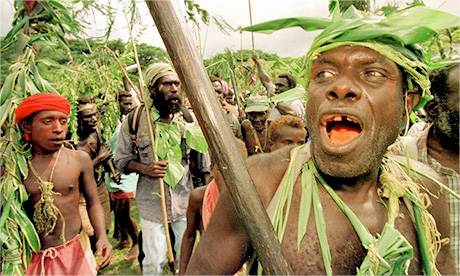2019 will be a momentous year for Bougainville.
This region of Papua New Guinea, that has had an autonomous government since 2005, is to hold a referendum on whether to extend this to full independence.
It is the culmination of a peace process that began in 1997 and which had ended nearly ten years of civil war – a war that is thought to have claimed as many as 20,000 lives.
In 2001 the Bougainville Peace Agreement was signed by Bougainville and the PNG governments, giving as its ultimate step a vote on possible independence.
In the intervening years various governmental powers were to be devolved to the Autonomous Bougainville Government, the ABG, by Port Moresby, with the aim that it would become progressively more autonomous.
The referendum was set to come within 15 years of the first ABG elections in 2005 and the government wanted it this year to avoid a clash with the provincial election next year.
After some debate the referendum is to be held from 12 October, after a tentative arrangement to hold it in June was deemed too soon as Bougainville wouldn’t be ready.
As far as the Bougainville government is concerned the national government was at fault for this delay because it had not been advancing constitutionally guaranteed funding which would have aided preparations.
Referendum Commission
A five-member agency has been set up by both governments to prepare Bougainville for the vote.
Headed by former Irish prime minister, Bertie Ahern, the Bougainville Referendum Commission’s role is to oversee and conduct the vote.
It has now been awarded some funding from the national government to carry out its work. Meanwhile, an American with experience in elections and referendums, Mauricio Claudio, has been appointed as the chief referendum officer.
Mr Claudio previouly helped run elections in the Americas, Africa, Europe, and Asia.
He has also been in Bougainville, having supported the 2015 local elections, and 2017 national elections.
In recent days an ABG roadshow has been touring the region to raise awareness and answer questions about the referendum.
It included president John Momis, members of his cabinet, the UN resident co-ordinator, Gianluca Rampolla, and the PNG minister of Bougainville Affairs, William Samb.
One of the conditions that the Peace Agreement requires be filled is that Bougainville is weapons free, or that the threat of illegal guns is removed. Continue reading
- Image: RNZ
News category: Analysis and Comment.




